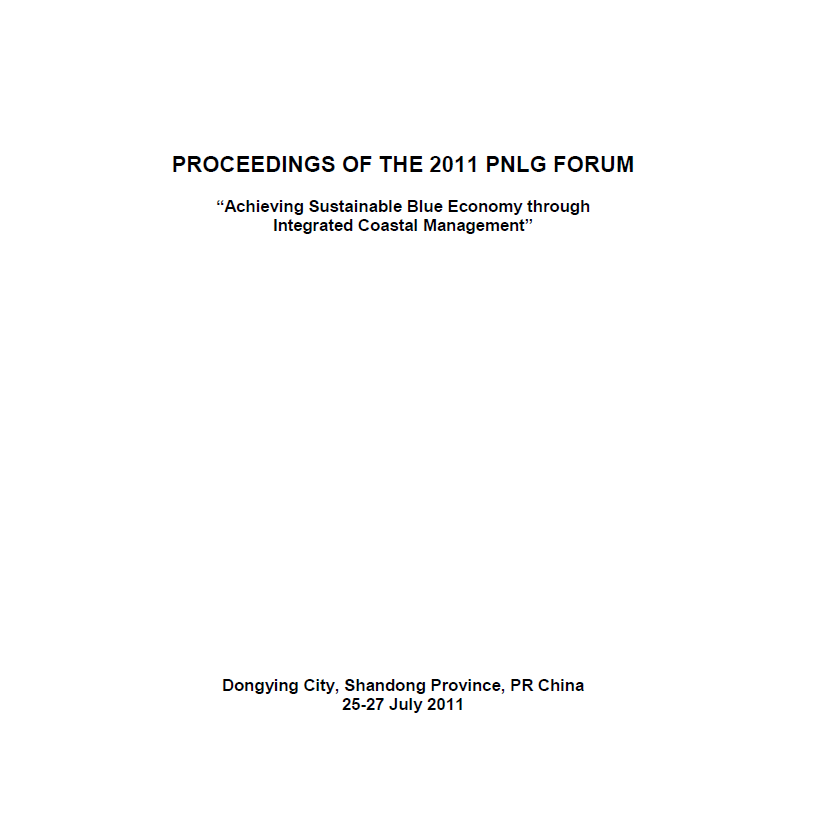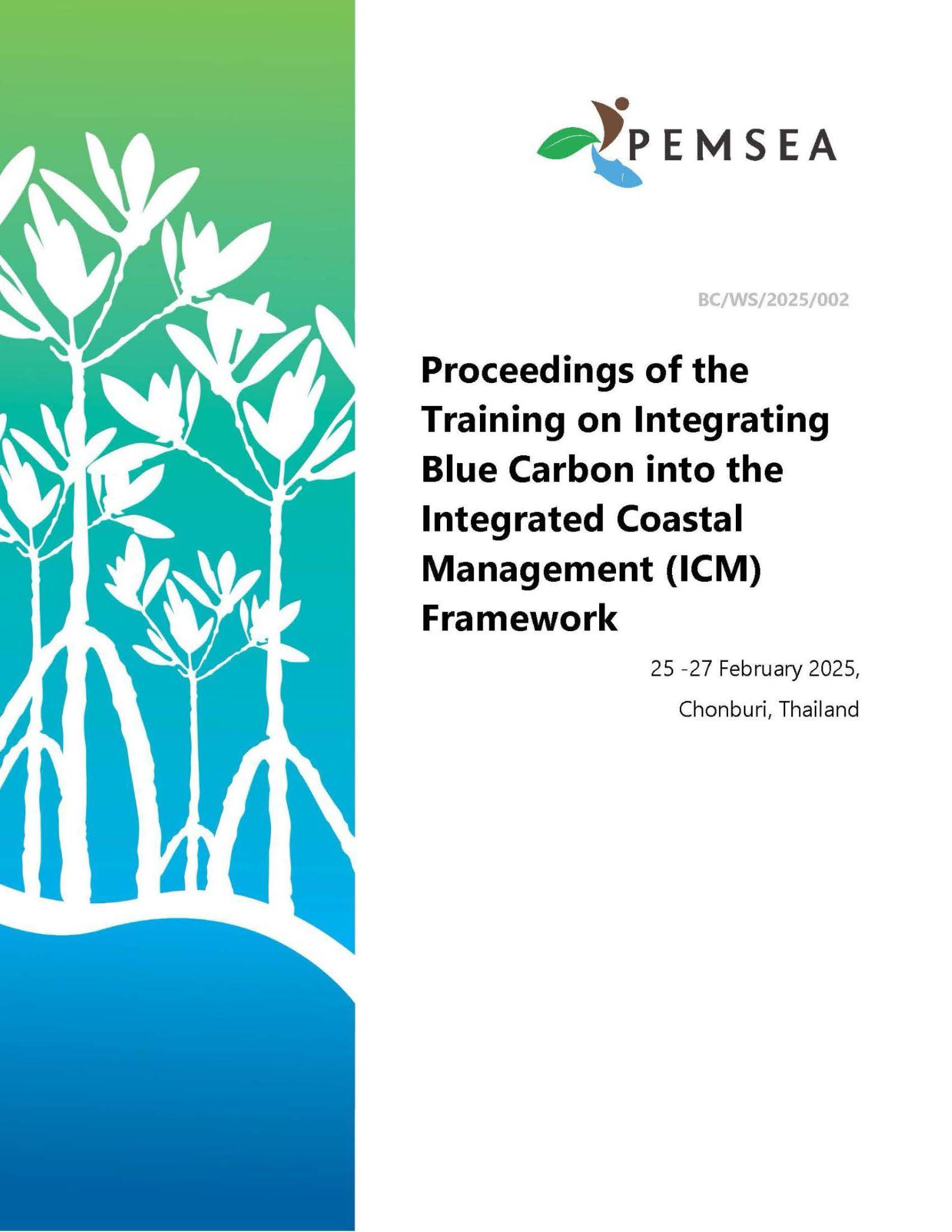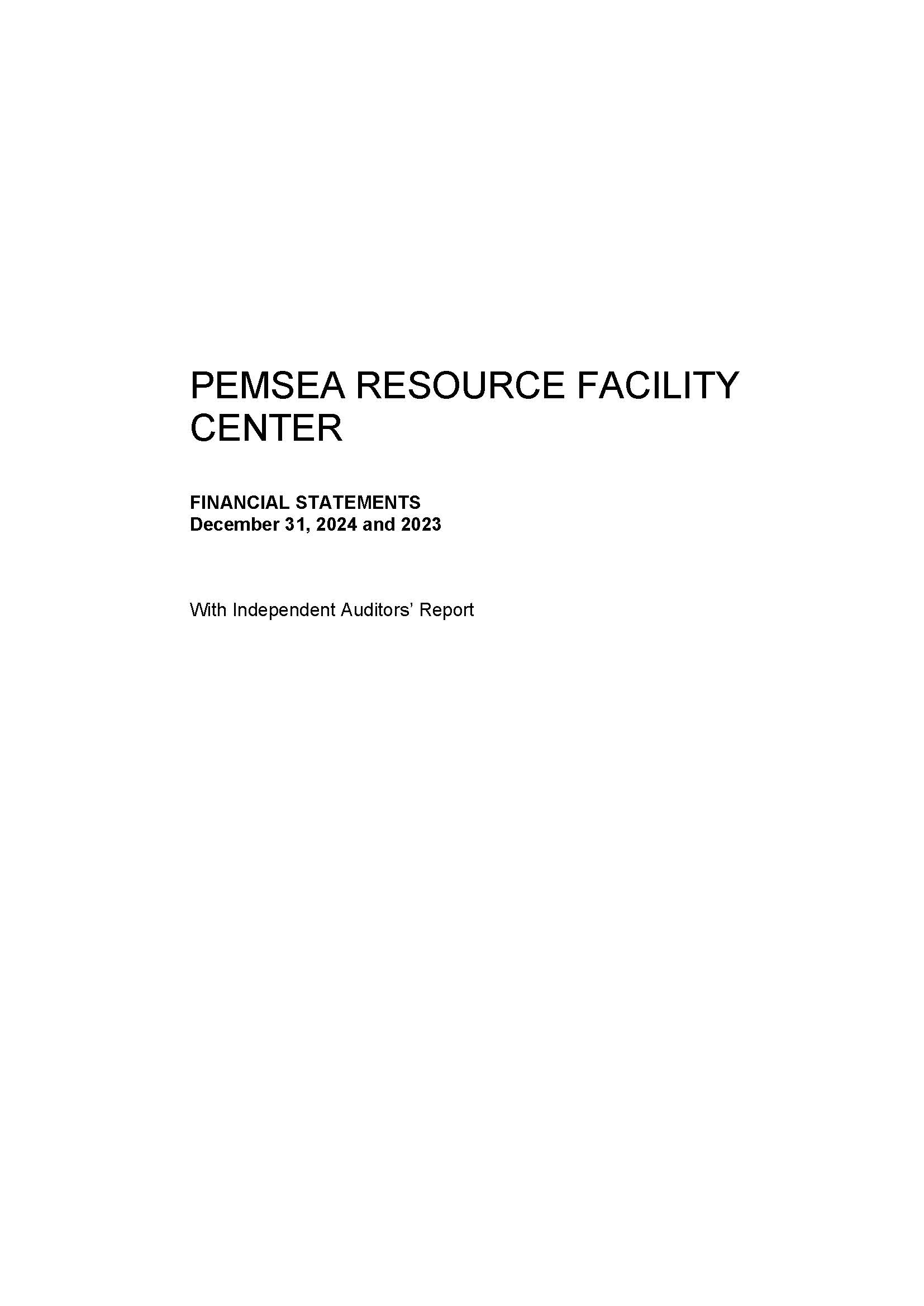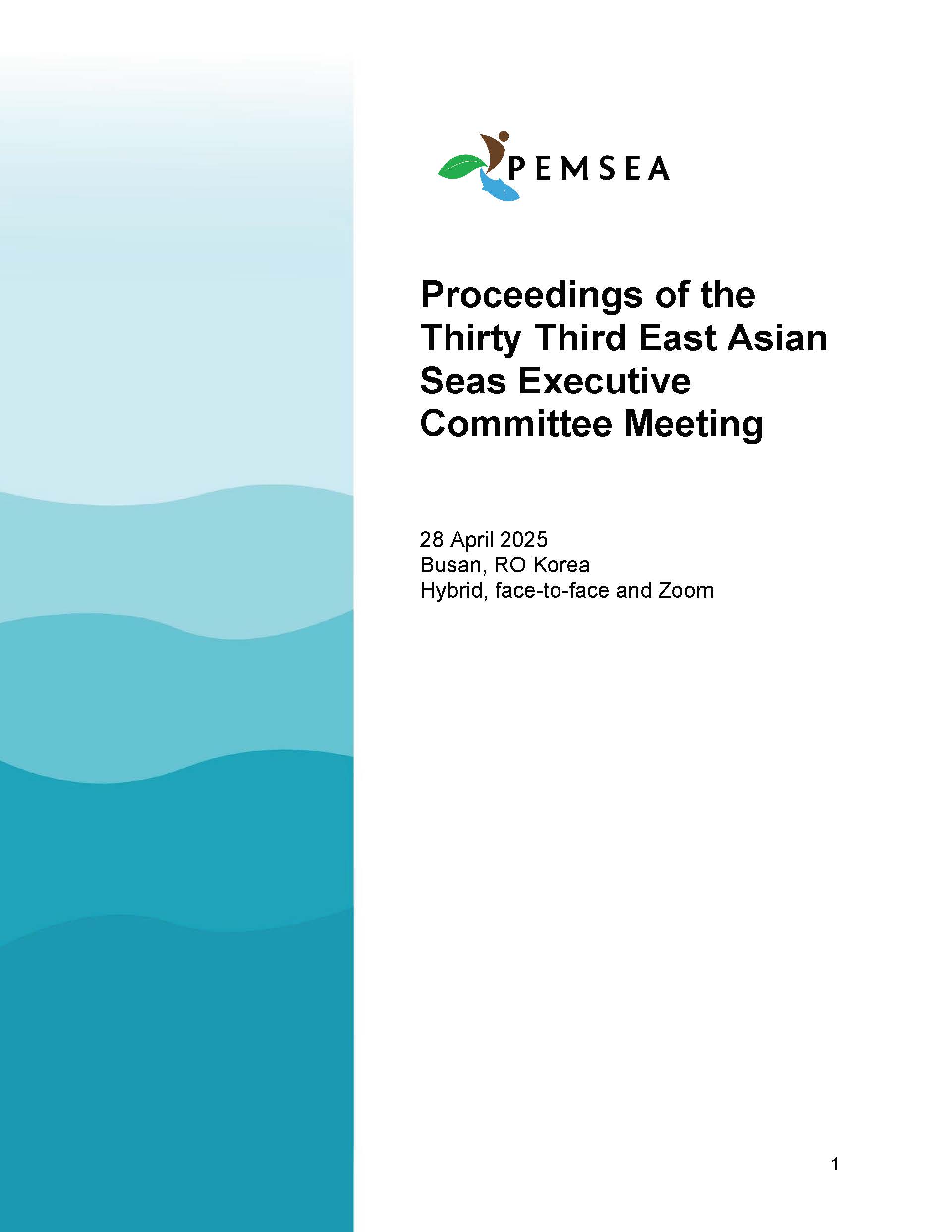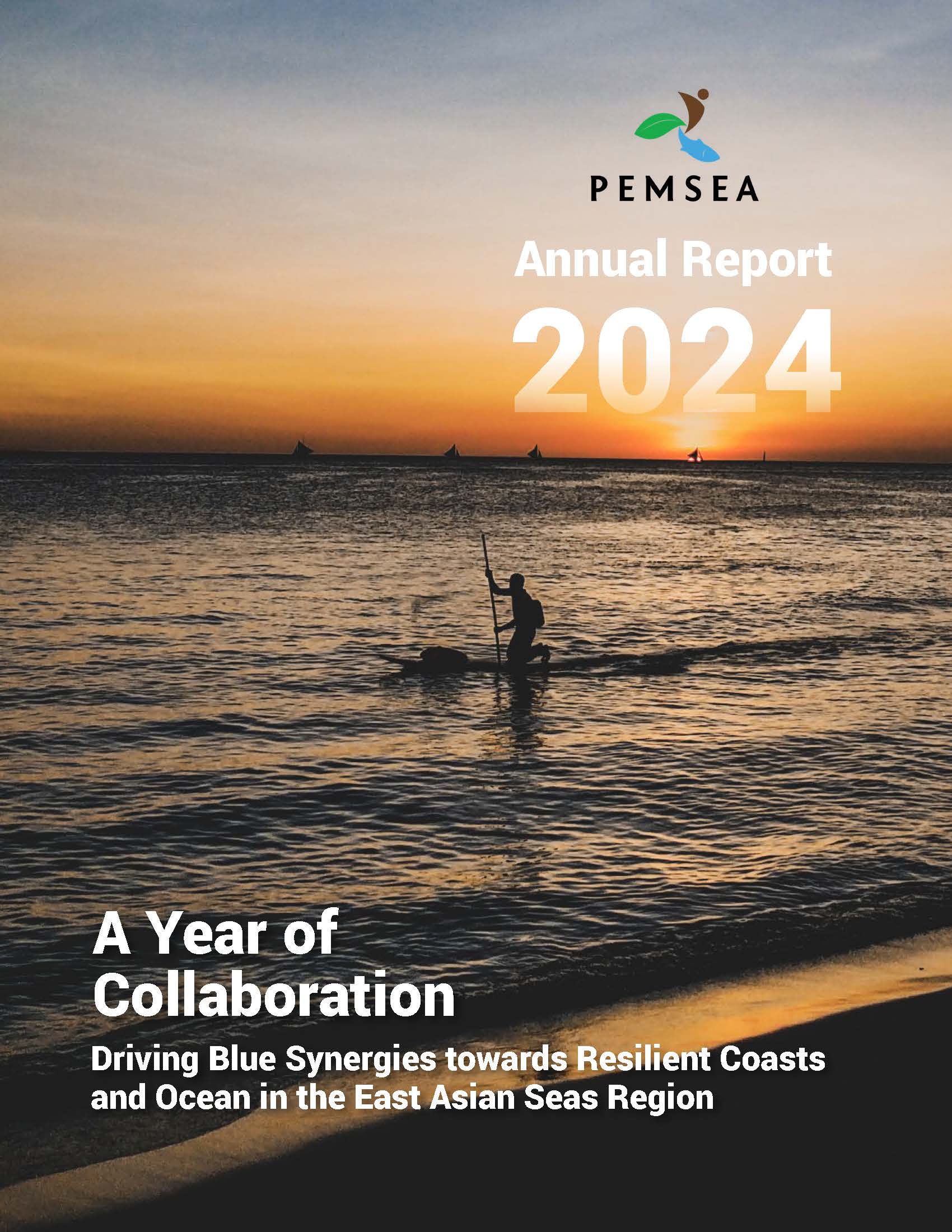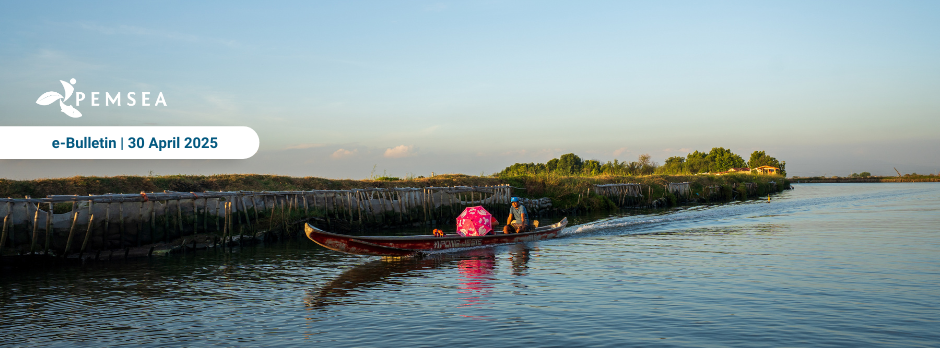
Breadcrumb
Proceedings of the 2011 PNLG Forum
PUBLICATION DATE:
Monday, July 25, 2011
PUBLICATION TYPE:
Meeting Documents
STATUS:
Available
DESCRIPTION:
“Achieving Sustainable Blue Economy through Integrated Coastal Management”
Dongying City, Shandong Province, PR China, 25-27 July 2011
A. INTRODUCTION
i. The 2011 PEMSEA Network of Local Governments (PNLG) Forum was held at the Blue Horizon International Hotel, Dongying City, Shandong Province, PR China, from 26 to 27 July 2011. The Dongying Municipal Government hosted the Meeting with support from the State Oceanic Administration of China.
ii. The Forum was attended by representatives from the PNLG members, namely: Cambodia (Preah Sihanouk); China (Dongying; Fangchenggang; Haikou; Laoting; Liangyungang; Quanzhou; Xiamen); Indonesia (Bali Province, Denpasar City; Gianyar Regency; Karangasem Regency; Tabanan Regency; Jakarta Province and Sukabumi Regency); Philippines (Bataan Province and Guimaras Province); RO Korea (Changwon City ); Thailand (Chonburi), and Vietnam (Danang and Thua Thien Hue).
iii. Representatives from various local governments and various institutions served as observers, including:Cambodia (Kep Province); Indonesia (Jembrana Regency; West Java Province); Lao PDR (Saravane; Champasak); China (Panjin Ocean and Fishery Bureau of China; Qingdao Ocean and Fishery Bureau; Yangjiang Ocean and Fishery Bureau; Haiyang Municipal Government; Haiyang Ocean and Fishery Bureau; North China Sea Branch of SOA; Shandong Provincial Department of Oceanic and Fishery; RO Korea (Kyungnam University; Korea Ocean Research and Development Institute); and Timor Leste (Ministry of Agriculture and Fisheries).
iv. The following served as resource speakers for the Forum: Dr. Chua Thia-Eng, Chair, EAS Partnership Council; Mr. Xue Rongjian, Deputy Director, Dongying Municipality Blue Economy Management Office, China; Mr. Lee Tsen Yang, National Parks Board, Singapore; Mr. Wang Shou Qiang, Representative of Dongying ICM Project, Dongying Municipal Government; Dr. Kee-Hyung Hwang, Research Fellow and Director, Korea Maritime Institute; Dr. Zhang Zhaohui, Associate Professor, First Institute of Oceanography, State Oceanic Administration, China.
v. The PNLG Secretariat in Xiamen and PEMSEA Resource Facility (PRF) served as the Secretariat for the Meeting, while the Dongying Ocean and Fishery Bureau served as the local secretariat.
vi. The meeting agenda and full list of participants are attached as Annex 1 and 2.
RELATED PUBLICATIONS
Proceedings of the Training on Integrating Blue Carbon into the Integrated Coastal Management (ICM) Framework
The PEMSEA Network of Learning Centers (PNLC), Burapha University and the PEMSEA Resource Facility co-organized the "Training on Integrating Blue Carbon into the Integrated Coastal Management (ICM) Framework" in March 2025 in Chonburi, Thailand.
The training, co-sponsored by Burapha University and the University of Hawai'i, with support from the Ministry of Higher Education, Science, Research and Innovation of Thailand, Thailand Science, Research and Innovation (TSRI), Henry Luce Foundation, and the Center for Southeast Asian Studies-University of Hawai’i, brought together PNLC participants and Chonburi Province coastal management stakeholders to enhance the understanding of Blue Carbon concepts and explore how the Network can support
PEMSEA's regional Blue Carbon program. The training had the following objectives:- Gain foundational understanding of ICM and its role in coastal resource management.
- Learn about the impacts of climate change on coastal ecosystems and communities.
- Understand the concept of Blue Carbon and its significance in climate change mitigation.
- Acquire the knowledge to integrate blue carbon principles into coastal management strategies, ensuring more sustainable and resilient coastal zones and harness the potential of blue carbon ecosystems as nature-based solutions for climate action.
- Identify work areas, in terms of knowledge, capacity and technical assistance, PNLC members need to strengthen to enable them to better support government and local community efforts in managing their coastal areas and associated blue carbon ecosystems.
Proceedings of the Thirty Third East Asian Seas Executive Committee Meeting
The East Asian Seas (EAS) Executive Committee convened its 33rd Meeting on 28 April 2025 in Busan, Republic of Korea. The meeting gathered key leaders of the EAS Partnership Council, including Chair Dr. Vann Monyneath, Co-Chair Atty. Jonas Leones, Intergovernmental Session Co-Chair Mr. Le Dai Thang, Technical Session Chair Dr. Keita Furukawa, and Technical Session Co-Chair Dr. Suk-Jae Kwon. The PEMSEA Resource Facility (PRF) Secretariat, led by Executive Director Ms. Aimee T. Gonzales, provided secretariat support, alongside other PRF staff. Observers included representatives from the Arafura Timor Seas program, Korea Maritime Institute, China’s Ministry of Natural Resources, and the China PEMSEA Center, with additional PRF personnel joining online.
The meeting agenda featured key updates and strategic discussions on the outcomes and next steps following the East Asian Seas Congress 2024, the alignment of the Sustainable Development Strategy for the Seas of East Asia (SDS-SEA) with 2030 targets, and PRF’s accomplishments in 2024 and work plan for 2025. Other agenda items included preparations for the 17th EAS Partnership Council Meeting, the engagement of Non-Country Partners, progress on the Blue Carbon Program, presentation of the 2024 audited financial report, and governance matters such as the election of new officers and the selection process for the next PRF Executive Director.
PEMSEA Annual Report 2024: A Year of Collaboration: Driving Blue Synergies Towards Resilient Coasts and Ocean in the East Asian Seas Region
2024 was a landmark year for PEMSEA with the successful organization of the EAS Congress 2024 and the 8th Ministerial Forum as key highlights. These milestone events led to stronger and renewed commitments to drive synergistic actions towards sustainable, inclusive and resilient coasts, ocean and communities, aligned with national priorities and global and regional targets.
Check out progress and plans of PEMSEA's projects that address complex interconnected environmental challenges in the region: marine plastic pollution, biodiversity loss and climate change through rigorous baseline data collation, analysis and reporting; enhancing governance and investment plans and programs; knowledge management and technical skills and capacity development.
PEMSEA eBulletin - April 2025
Dear PEMSEA community,
April is packed with exciting progress and developments across the region!
PEMSEA is making waves at the 10th Our Ocean Conference in Busan by organizing a side event that brought together regional partners committed to support governments in meeting their 30x30 conservation targets while enhancing protection of our valuable marine ecosystems.
Looking toward the future, PEMSEA's Executive Committee (EC) Meeting in Busan endorsed plans to extend our Sustainable Development Strategy implementation to 2030. The EC also noted progress on our regional Blue Carbon Program and finalized the timeline for upcoming Partnership Council elections.
We're also proud to announce the release of "Threads of Resilience," the sixth edition of our Integrated River Basin Management Project newsletter. This issue tells inspiring narratives of women from the Sasmuan Pampanga Coastal Wetlands alongside the impactful work of female environmental leaders driving change across Southeast Asia and critical conservation needs for key project sites, including Indonesia's Ciliwung River.
Other important developments include the PNLG Executive Committee's announcement of upcoming elections and General Assembly in Jakarta, the successful launch of the GEF/UNDP/ASEAN Integrated River Basin Management Project in Viet Nam, and regional training initiatives to enhance blue carbon knowledge and integrated coastal management strategies in Xiamen, China.
